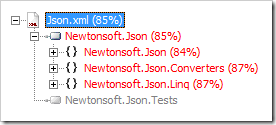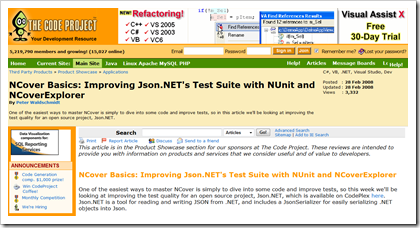I Rule at Chain Letters
With only a little proding *cough*Mr Law*cough* all the people I tagged for How I Got Started in Software Development made a post.
- Andrew Tokeley - How I Got Started in Software Development
- Gavin Barron - /dev/gav
- Brendan Law - The evolution of chain letters...
- Jo Chapman - Meme-ishness
- Chinnakonda "Chaks" Chakkaradeep - How I Got Started in Software Development
Good luck, wealth, love, health and fame are mine!

Kids Say the Darndest Things
 Question:
Question:
Can Json.net parse rfc-822 format?
Answer:
I'm not going to spend time testing this myself right now but I would guess that the odds of a JSON parser being able to successfully and correctly parse the RFC-822 email format is low.
*facepalm*
How I Got Started in Software Development
 I have been memed.
I have been memed.
How old were you when you started programming?
19.
How did you get started in programming?
Most of my experience with computers as a teenager was playing computer games. It wasn't until my second year of doing commerce at university that I did a programming paper and really got into it. Oddly I have never had the desire to write a computer game.
What was your first language?
Visual Basic 6.
What was the first real program you wrote?
Some lameo VB6/Access data entry form for university.
What languages have you used since you started programming?
Visual Basic, SQL, PL/SQL, JavaScript, C#, Python, Delphi.
What was your first professional programming gig?
Building a transaction management system for a small Internet startup.
If you knew then what you know now, would you have started programming?
Yes.
If there is one thing you learned along the way that you would tell new developers, what would it be?
The software development world is a huge place. Don't be afraid to spend a couple of years exploring and finding what you’re most passionate about.
What’s the most fun you’ve ever had… programming?
Solving challenging business and technology problems in a simple, maintainable way that hides all the complexity behind a easy to use interface. Json.NET and and the RuntimePageOptimizer are two projects that I have really enjoyed working on.
I choose
Unit Test Code Coverage - What Is A Good Number?
Shawn writes that you should have 100% test code coverage, Jason agrees. Tokes, a co-worker and the person who pointed these posts out to me, disagrees.
I also disagree.
Background
I'm a strong believer in unit testing. I have used unit testing in almost every project I have been involved in for a couple of years now and each time I find I get more and more value from using them.
My experience with code coverage tools is more limited. I first started looking at NCover and code coverage after coming across an NCover article written its creator. The article used Json.NET, my own open source project, as the example! (if that doesn't prompt you to look at something nothing will [:D])
Near the end of the development cycle of Json.NET 2.0 NCover was of huge help identifying which methods and sections of code didn't have any tests running over them. Without NCover many of the bugs I found from eventually unit testing that code would still be in Json.NET.
Coverage Percentage
While I think NCover is a great tool to identify what sections of code aren't being tested, the overall percentage mark that it gives is potentially dangerous.
Every software project has limited resources and spending your time chasing that number is a poor use of it. 100% coverage certainly doesn't mean that your program is bug free. Code that works with one input will break with another.
When it comes to unit testing I believe you are better off writing tests that focus on your use cases.
Obviously checking that the results are right is important but there is also making sure that your code behaves as expected when passed boundary values, performing inverse operations and cross checking results elsewhere in the application. These are all important things to test when creating robust code but aren't necessary to achieve 100% coverage.
A Good Number
So what is a good number? If you have written tests the cover the possible uses of your application given the time available (NCover is useful for double checking that you are testing everything you want to) and have then have verified that the results are correct, whatever number your code coverage is at that moment is in my opinion a good number.
Json.NET's was 85%


